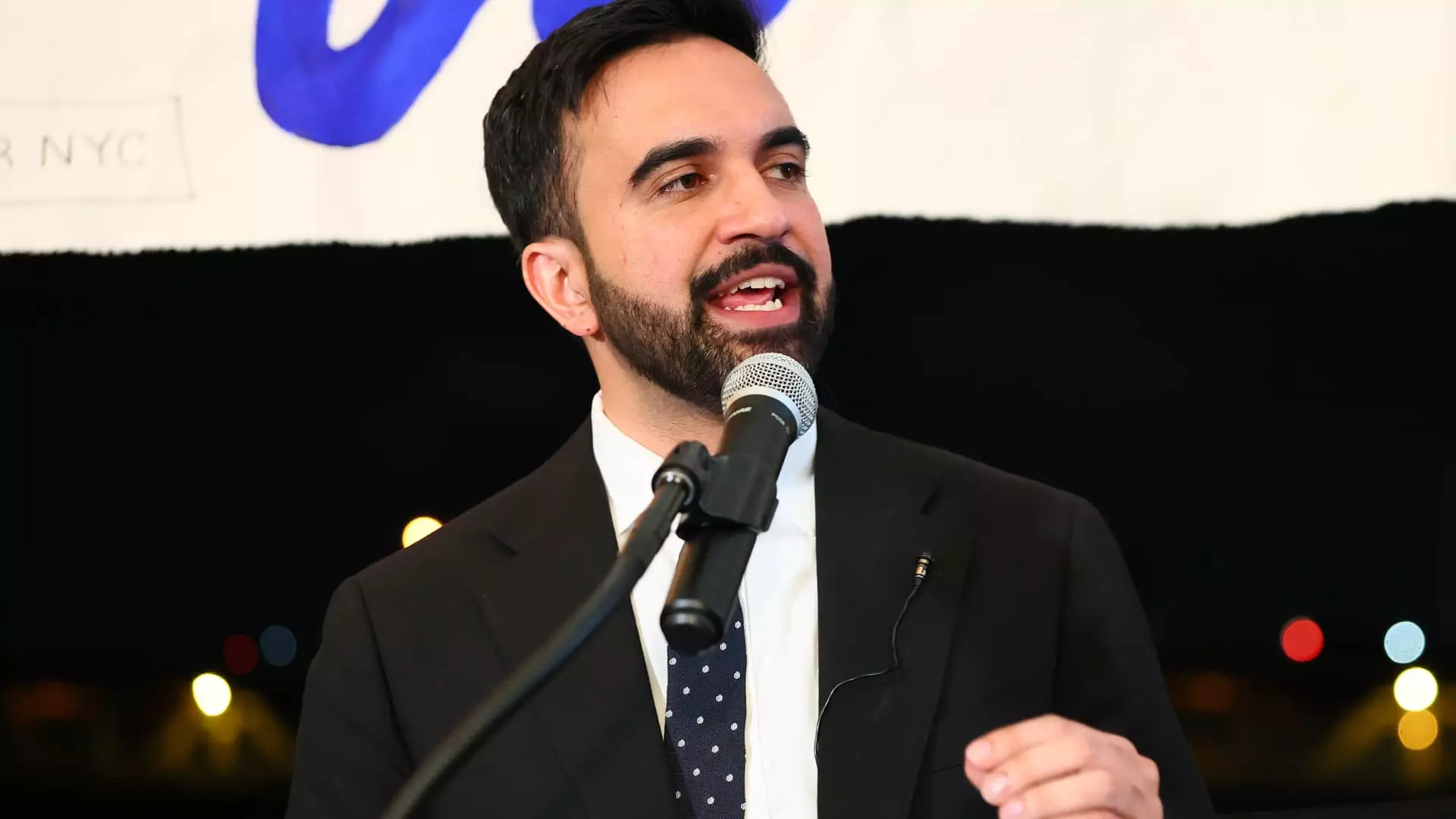The recent decline of 6% in Flagstar Bank’s shares feels almost emblematic of a much larger narrative unfolding in New York City. The apparent victory of Zohran Mamdani in the Democratic mayoral primary is no small matter; it serves as a bellwether for the city’s political and economic future. Mamdani’s campaign promises, particularly the freezing of rent increases for stabilized units, have sent immediate waves of concern through sectors reliant on real estate financing, with Flagstar at the forefront of this financial tremor.
Mamdani’s rise signifies a pivotal shift toward policies that may favor tenants over landlords, igniting fears among investors who see rental stability as detrimental to profit margins. This shift isn’t merely a political standpoint; it’s a stark contrast to a long-standing capitalist ideology that upholds property rights as inviolable. While many see Mamdani’s policies as a necessary response to exorbitant living costs, the curtain raised by this political shift reveals both the fragility of the banking sector and the core tension between economic growth and social policy.
Economic Consequences of Regulatory Overreach
Flagstar, having undergone rebranding from New York Community Bancorp, finds itself entangled in over $16 billion of multi-family loans subject to New York’s stringent rent regulations. The implications are dire: if these regulations tighten further under a Mamdani administration, the bank’s ability to generate returns could be jeopardized, leading to broader ramifications for New York’s economy.
Analysts remain divided on the potential impact. While some argue that the immediate repercussions may be manageable, a prolonged rent freeze poses an existential threat not only to Flagstar but also to the broader financial landscape. The dissent among analysts mirrors the uncertainty prevailing among investors, who thrive in conditions of clarity but falter in times of ambiguity. When legislative proposals start to dictate financial sustainability, the risk of systemic failure grows manifold.
An Investment Climate in Flux
Flagstar isn’t alone in feeling the heat; the broader landscape of real estate investment is trembling under the weight of political uncertainties. Stocks from office-focused real estate firms such as SL Green Realty and Vornado Realty Trust plummeted nearly 5%, signaling investor anxiety stretched across the market. The fear is palpable: leaders like Mamdani could be ushering in a series of policy changes that prioritize social equity over economic pragmatism.
From an economic liberal perspective, this creates a dilemma. On one hand, the necessity for affordable housing cannot be understated. However, imposing draconian measures on rental increases could lead to a chilling effect, discouraging investments in new housing developments. Existing properties could suffer from a decline in care and upkeep, as revenue flows stifle under regulatory burdens. Without a balance that respects both tenant needs and property rights, the longer-term consequences could spiral out of control.
The Broader Implications for Governance and Corporate Responsibility
Mamdani’s proposals echo a growing sentiment across the country—one that places the onus of societal challenges on corporations and financial institutions. While higher corporate tax rates may gesture toward fiscal responsibility, it raises questions about economic viability in a city that historically prides itself on being a business hub. To draw lines between social responsibility and corporate viability is not merely an exercise in ethics, but a necessity in governance.
Critics of Mamdani’s approach argue that regression into heavy regulation may undermine the very fabric of what makes New York a dynamic and competitive environment. Balancing the needs of low-income residents against the interests of businesses and investors is no small feat, yet it is a dialogue that must occur. A prosperity model that excludes corporate health will ultimately drain the city’s economy, putting pressure on all sectors.
As New York grapples with its political identity, the implications for both Flagstar and the city’s housing market serve as a glaring example of the need for deliberate and balanced governance. In this environment of uncertainty, will New York find a way to navigate the intricacies of economic pressures against a backdrop of aggressive social justice policies? The unfolding political narrative may well provide the answer.

